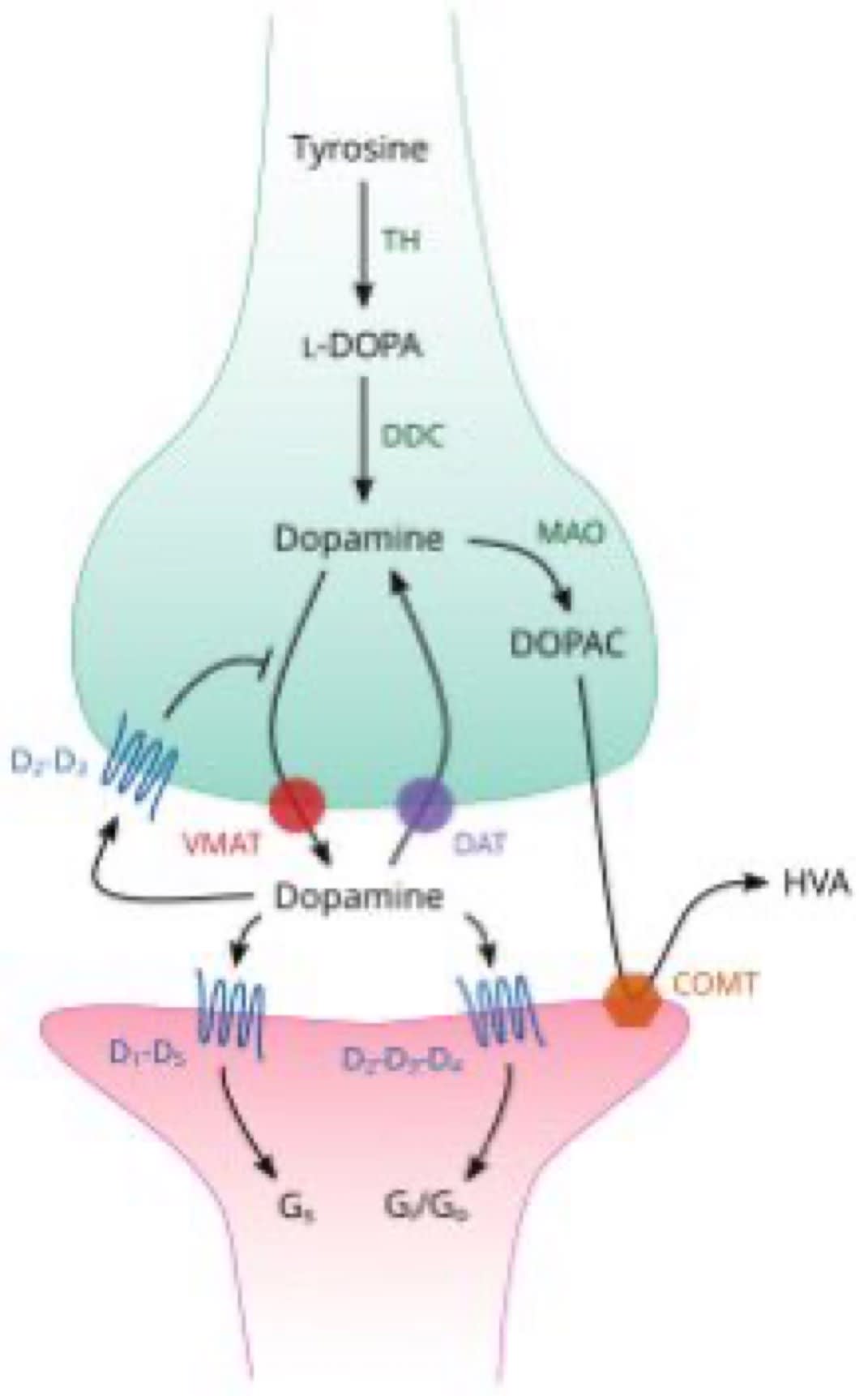SARS-CoV-2 Infection May Lead to Dopamine Neuron Senescence and Long-term Neurological Issues
Research has uncovered a potentially concerning link between SARS-CoV-2 infection and the health of our brain's dopamine neurons. Several studies have found that the virus responsible for COVID-19 can directly infect these critical cells, triggering a process called cellular senescence that leads to inflammation and impaired function[1][2][3].
What is Dopamine Neuron Senescence?
Dopamine neurons are specialized brain cells that produce the neurotransmitter dopamine, which plays a vital role in regulating movement, motivation, pleasure, and emotional responses. When these neurons undergo senescence due to SARS-CoV-2 infection, they essentially stop dividing and functioning properly[4].
The senescent dopamine neurons exhibit signs of inflammation and send out distress signals that can affect surrounding brain tissue[1]. Over time, the accumulation of these dysfunctional cells may contribute to neurological symptoms often reported by COVID-19 "long haulers," such as:
- Brain fog and cognitive issues
- Fatigue and lethargy
- Depression and mood changes
- Sleep disturbances
Parkinson's Disease Connection
Even more alarming, dopamine neuron damage and senescence is a well-established feature of Parkinson's disease, a progressive neurodegenerative disorder that impacts movement and cognition[2]. While more research is needed, the potential link between COVID-19 infection and increased Parkinson's risk certainly warrants close monitoring of recovered patients.
Protecting the Brain
On a positive note, the research teams identified several existing drugs, like riluzole (ALS treatment), metformin (diabetes medication), and imatinib (cancer drug), that could prevent SARS-CoV-2 from infecting dopamine neurons in lab experiments[3][4]. Further studies may lead to preventative treatments to safeguard the brain.
As we continue to grapple with the far-reaching impacts of the COVID-19 pandemic, this underscores the critical importance of understanding the virus's long-term effects on the nervous system. Close collaboration between researchers and clinicians will be key to developing strategies to protect brain health in the face of this ongoing challenge.


